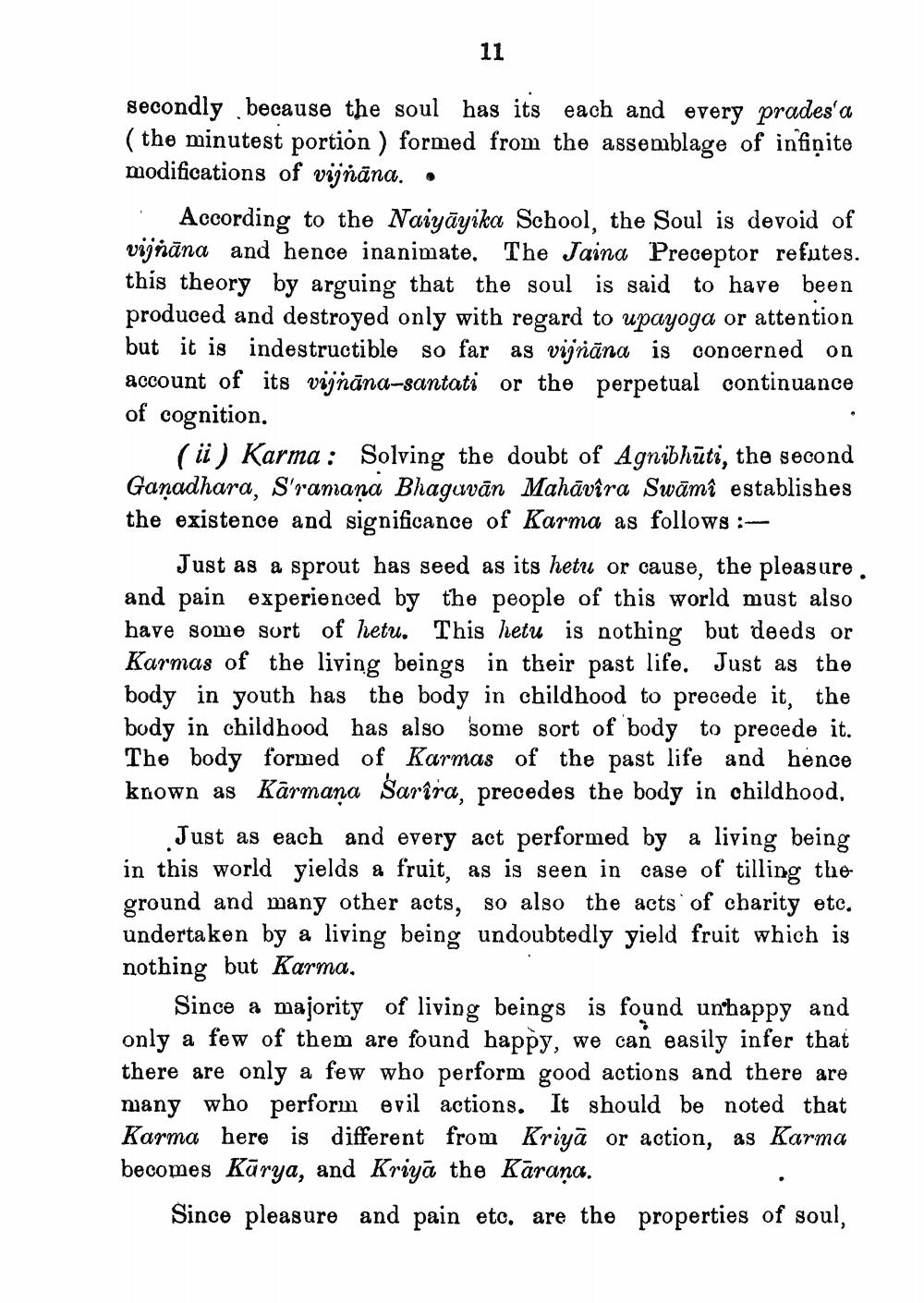________________
secondlybecause the soul has its each and every prades'a (the minutest portion ) formed from the assemblage of infiņite modifications of vijñāna..
According to the Naiyāyika School, the Soul is devoid of vijñāna and hence inanimate. The Jaina Preceptor refutes. this theory by arguing that the soul is said to have been produced and destroyed only with regard to upayoga or attention but it is indestructible so far as vijñāna is concerned on account of its vijnāna-santati or the perpetual continuance of cognition.
(ii) Karma: Solving the doubt of Agnibhūti, the second Gañadhara, S'raman, Bhagavān Mahāvîra Swāmî establishes the existence and significance of Karma as follows:
Just as a sprout has seed as its hetu or cause, the pleasure. and pain experienced by the people of this world must also have some sort of hetu. This hetu is nothing but deeds or Karmas of the living beings in their past life. Just as the body in youth has the body in childhood to precede it, the body in childhood has also some sort of body to precede it. The body formed of Karmas of the past life and hence known as Kārmana Sarira, precedes the body in childhood.
Just as each and every act performed by a living being in this world yields a fruit, as is seen in case of tilling the ground and many other acts, so also the acts of charity etc. undertaken by a living being undoubtedly yield fruit which is nothing but Karma,
Since a majority of living beings is found unhappy and only a few of them are found happy, we can easily infer that there are only a few who perform good actions and there are many who perform evil actions. It should be noted that Karma here is different from Kriyā or action, as Karma becomes Kārya, and Kriya the Kāraņa.
Since pleasure and pain etc. are the properties of soul,




